Answered step by step
Verified Expert Solution
Question
1 Approved Answer
thanks you policymakers might be interested in knowing how a change in the legal constraints facing consumers and firms would affect individual welfares. suppose initially
thanks you 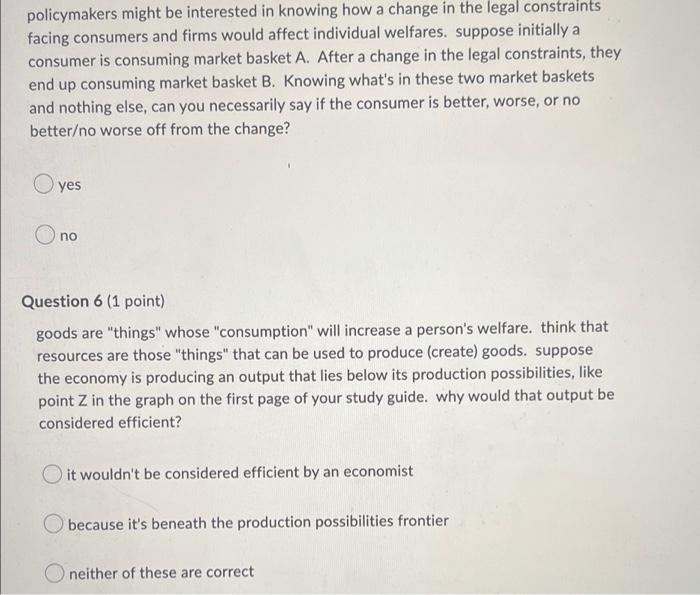
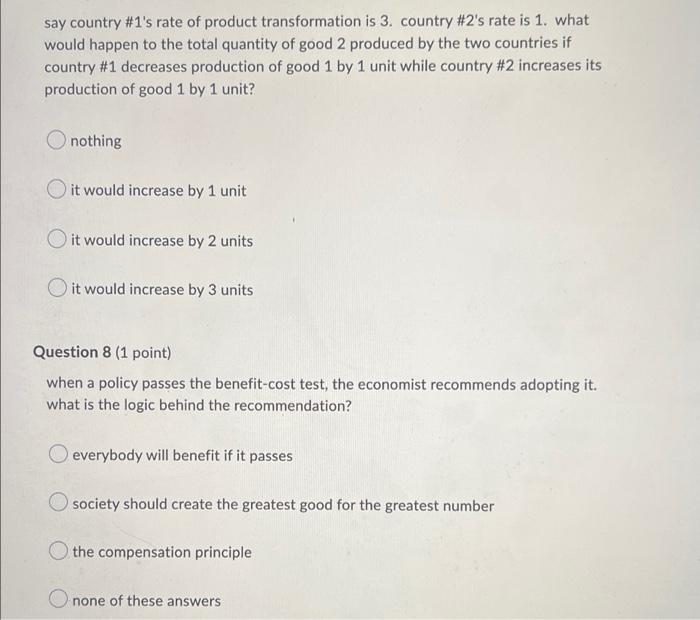
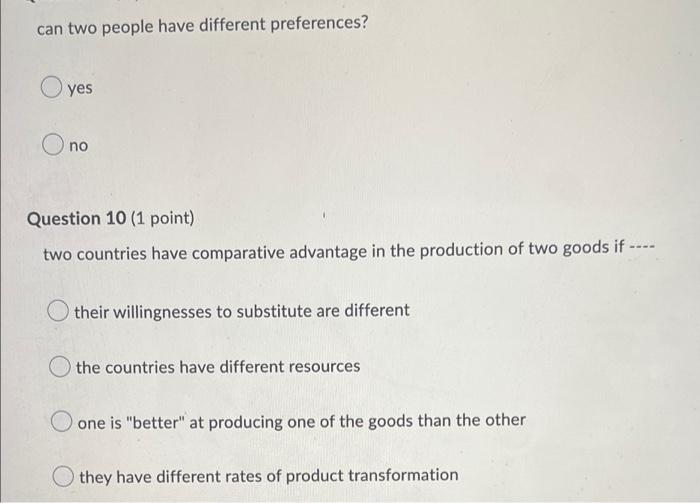
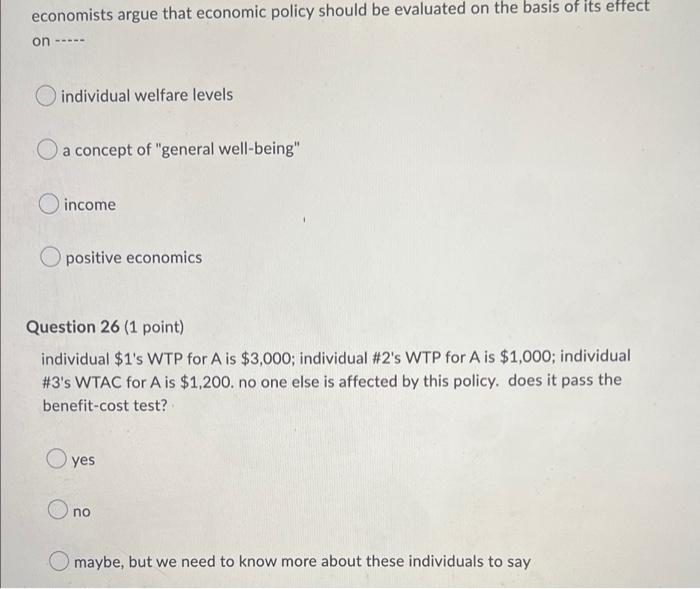
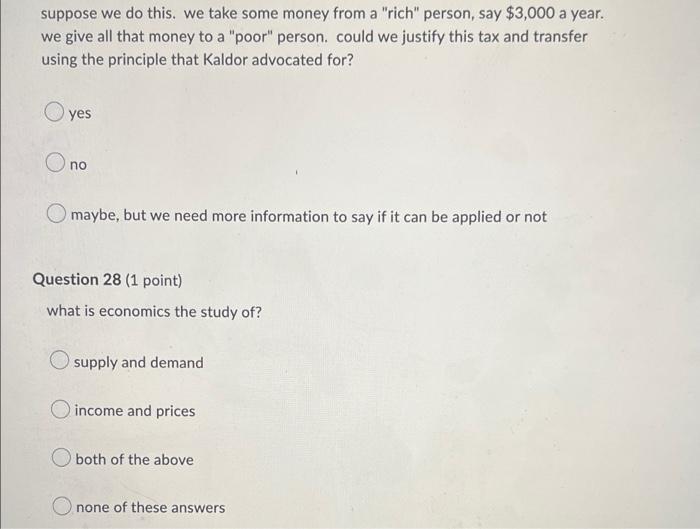
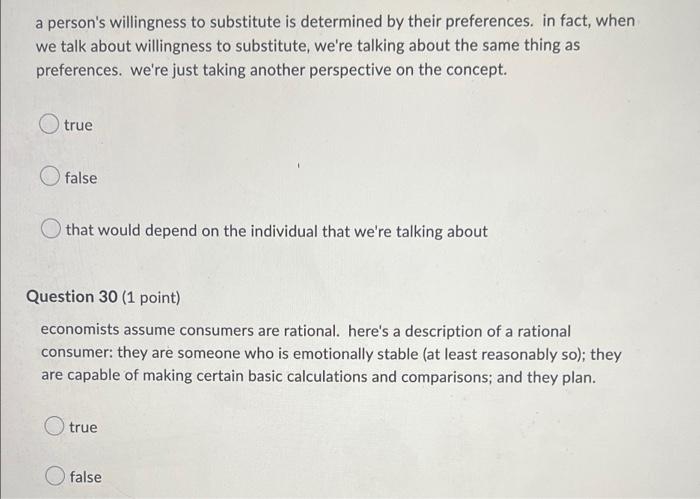
policymakers might be interested in knowing how a change in the legal constraints facing consumers and firms would affect individual welfares. suppose initially a consumer is consuming market basket A. After a change in the legal constraints, they end up consuming market basket B. Knowing what's in these two market baskets and nothing else, can you necessarily say if the consumer is better, worse, or no bettero worse off from the change? O yes no Question 6 (1 point) goods are "things" whose "consumption" will increase a person's welfare. think that resources are those "things" that can be used to produce (create) goods. suppose the economy is producing an output that lies below its production possibilities, like point Z in the graph on the first page of your study guide. why would that output be considered efficient? it wouldn't be considered efficient by an economist Obecause it's beneath the production possibilities frontier neither of these are correct say country #1's rate of product transformation is 3. country #2's rate is 1. what would happen to the total quantity of good 2 produced by the two countries if country #1 decreases production of good 1 by 1 unit while country #2 increases its production of good 1 by 1 unit? nothing O it would increase by 1 unit it would increase by 2 units O it would increase by 3 units Question 8 (1 point) when a policy passes the benefit-cost test, the economist recommends adopting it. what is the logic behind the recommendation? O everybody will benefit if it passes society should create the greatest good for the greatest number the compensation principle O none of these answers can two people have different preferences? yes no Question 10 (1 point) two countries have comparative advantage in the production of two goods if ---- their willingnesses to substitute are different the countries have different resources one is "better" at producing one of the goods than the other they have different rates of product transformation economists argue that economic policy should be evaluated on the basis of its effect on --- individual welfare levels O a concept of "general well-being" income Opositive economics Question 26 (1 point) individual $1's WTP for A is $3,000; individual #2's WTP for A is $1,000; individual #3's WTAC for A is $1,200. no one else is affected by this policy. does it pass the benefit-cost test? O yes O no Omaybe, but we need to know more about these individuals to say suppose we do this. we take some money from a "rich" person, say $3,000 a year. we give all that money to a "poor" person. could we justify this tax and transfer using the principle that Kaldor advocated for? yes O no maybe, but we need more information to say if it can be applied or not Question 28 (1 point) what is economics the study of? supply and demand income and prices Oboth of the above Onone of these answers a person's willingness to substitute is determined by their preferences. in fact, when we talk about willingness to substitute, we're talking about the same thing as preferences. we're just taking another perspective on the concept. O true false that would depend on the individual that we're talking about Question 30 (1 point) economists assume consumers are rational. here's a description of a rational consumer: they are someone who is emotionally stable (at least reasonably so); they are capable of making certain basic calculations and comparisons; and they plan. true false 





Step by Step Solution
There are 3 Steps involved in it
Step: 1

Get Instant Access to Expert-Tailored Solutions
See step-by-step solutions with expert insights and AI powered tools for academic success
Step: 2

Step: 3

Ace Your Homework with AI
Get the answers you need in no time with our AI-driven, step-by-step assistance
Get Started


